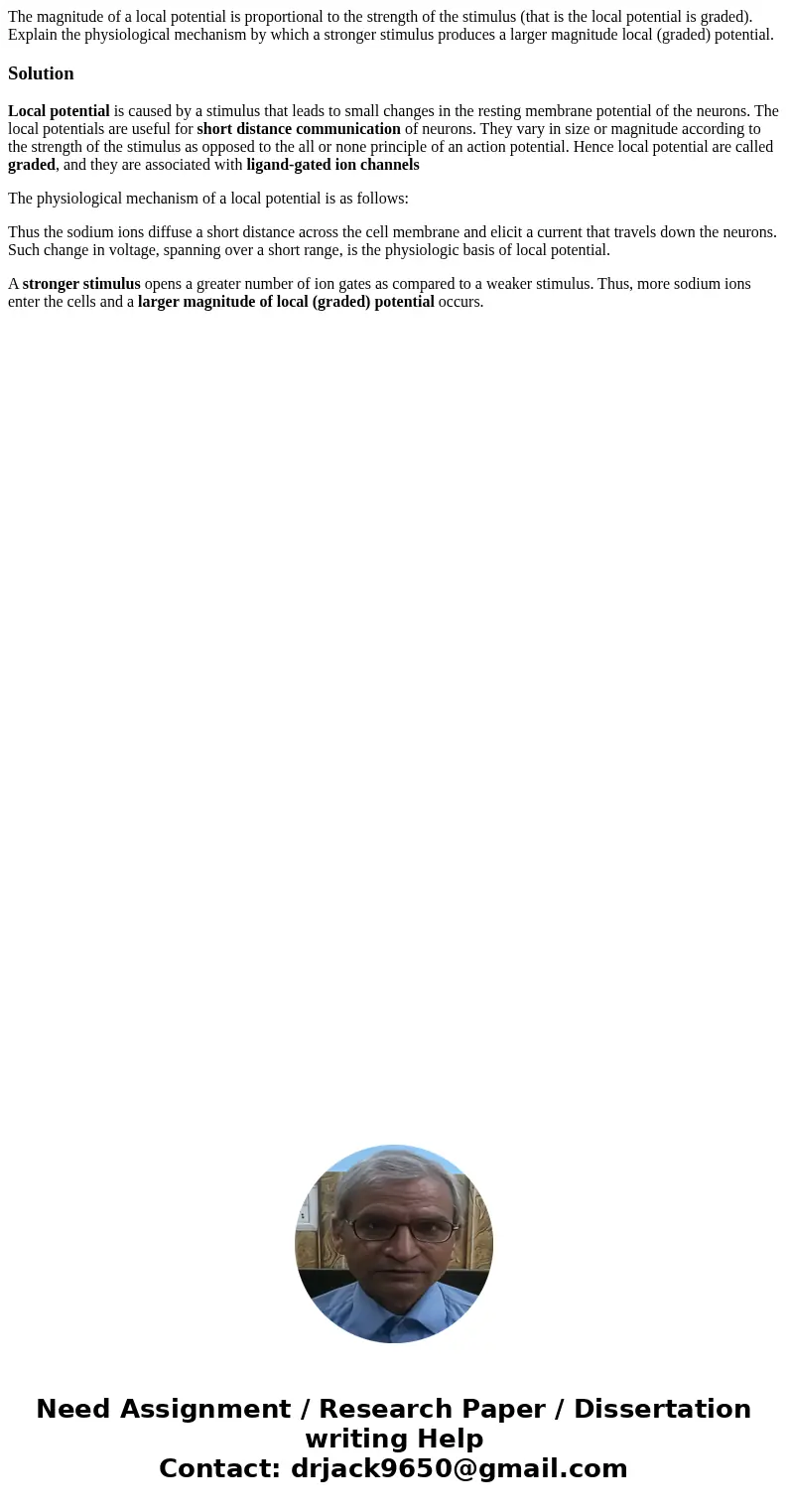The magnitude of a local potential is proportional to the st
Solution
Local potential is caused by a stimulus that leads to small changes in the resting membrane potential of the neurons. The local potentials are useful for short distance communication of neurons. They vary in size or magnitude according to the strength of the stimulus as opposed to the all or none principle of an action potential. Hence local potential are called graded, and they are associated with ligand-gated ion channels
The physiological mechanism of a local potential is as follows:
Thus the sodium ions diffuse a short distance across the cell membrane and elicit a current that travels down the neurons. Such change in voltage, spanning over a short range, is the physiologic basis of local potential.
A stronger stimulus opens a greater number of ion gates as compared to a weaker stimulus. Thus, more sodium ions enter the cells and a larger magnitude of local (graded) potential occurs.

 Homework Sourse
Homework Sourse